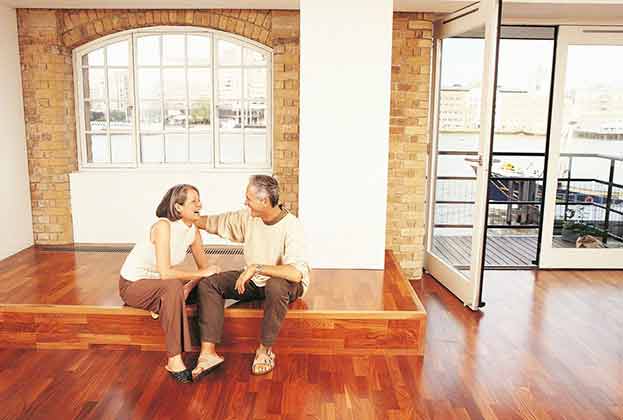What are the needs and expectations of the elderly people, notably regarding their home?
The common portrayal of senior people is generally in sharp contrast with the living experience for many. According to Ipsos*, those in later life are, in fact, some of the happiest in society. On average, 83% of the people aged 65 or over feel satisfied with their life against 70% for the younger population (less than 65). Between 75 and 79 years old, this level of satisfaction goes up to 86%. However, it drops to 79% starting from 80 years old, which corresponds to the time when the loss of autonomy is starting to be felt and also considered by elderly people to be the start of the “old age” (79 years old). They also feel more useful than younger generations. Healthier for longer, they want to enjoy life and have fun but generally do not bury their heads in the sand about their future. 75% say they try to anticipate their future needs, and on average 47% say they can save money.
Their home is a sensitive subject as it is often the epicentre of their life-time accumulated habits and memories. Most older people want to stay in their own homes for as long as possible. Even if they were to become dependent and in need of a medical follow-up to live, 69% would rather stay in their home by adapting it. Living in a new home in a senior housing residence would be their second choice. 31% think it would be a desirable option and 43% think it would not be desirable but realistic. One in four senior feels they should move because their current accommodation is no longer suitable for them and only 37% of the respondents have already begun to anticipate the adjustments they would need to be able to stay in their home.
Quality, security, calm and stability are the key components for them to feel at home and the criteria that have the most important role in their attachment to their home, whereas memory-related furniture or objects seem to have less importance to them. Their physical conditions and their home location are the main drivers for them to decide to move. 34% would feel ready to move to accommodation more suited to their current or future physical condition. 33% would move for accommodation located closer to their loved-ones and 33% would move for accommodation closer to commodities. Seniors are very attached to their pets which can be the main brake for them to move. For 90% of them, the presence of their pet is crucial or important and 63% would not agree to move to a residence more suited to their physical condition without their pet.
If they are not digital native, they are more connected than we give them credit for. According to Eurostat, last year, 58% of the Europeans aged 65 or over, used the internet in the last three months compared to 19% in 2008. The current generation of those in later life are more connected than ever and recognise the benefits that technology can bring as much as younger people do. Older people are using the internet to communicate, to find information about goods and services, to read, to watch movies and to access services. 66% use the internet to send emails on a weekly basis, 47% to manage their finances, 41% use social media (Facebook, Twitter…), 35% to search for information or chat on forums, 33% to listen to music or to watch movies. Being up-to-date and feeling useful comes first and foremost by keeping abreast of innovations and embracing new technology. 47% say they like discovering new things and keep abreast of innovations.
Read the articles within European Senior Housing below.
.jpg)
.jpg)
.jpg)

